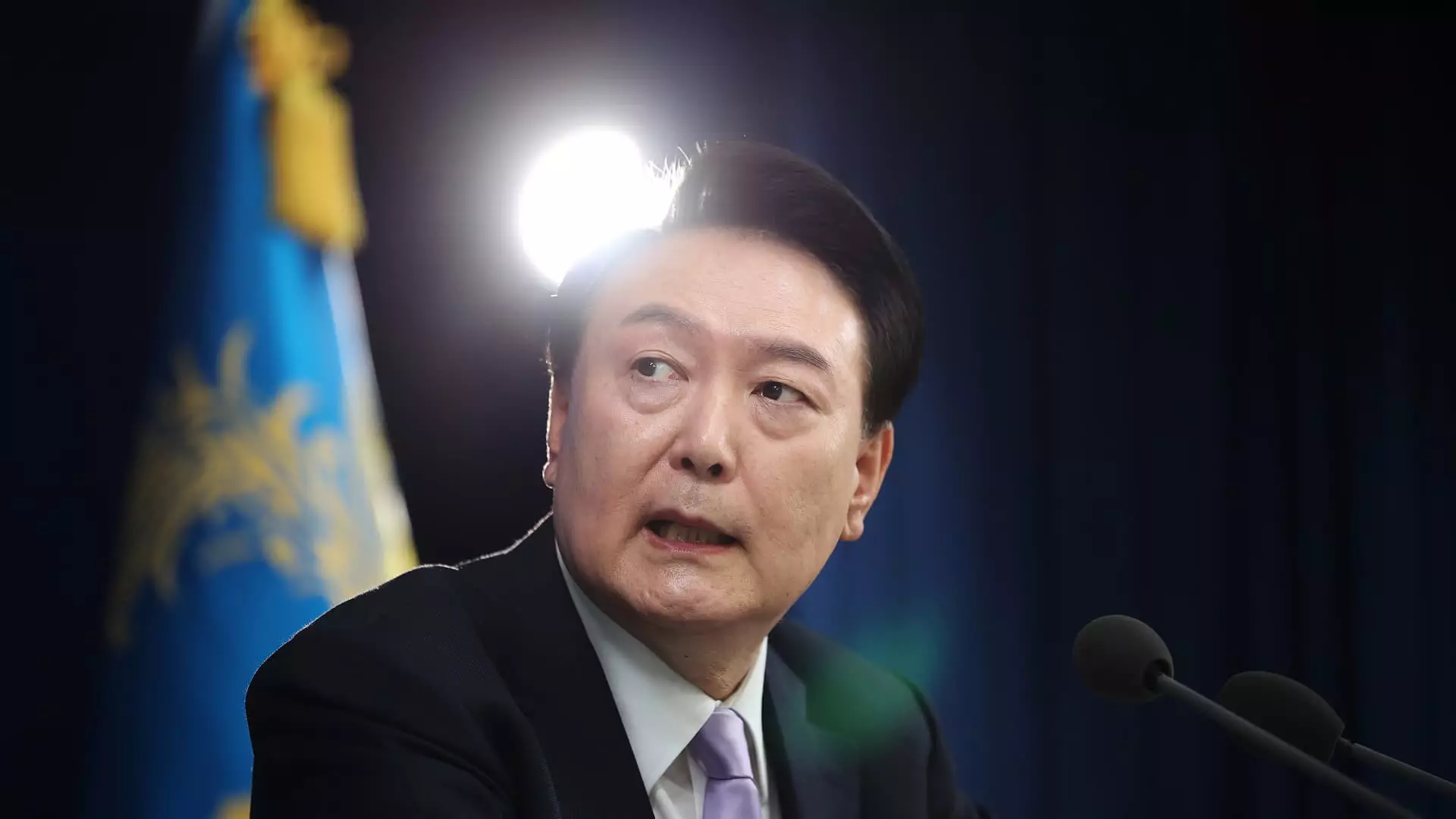President Yoon Suk Yeol of South Korea recently faced a significant political crisis when an impeachment motion was raised against him following a controversial call for martial law. The motion emerged from opposition members, particularly from the Democratic Party, and was aimed at curbing Yoon’s authority amid growing public dissent. For a motion of impeachment to succeed in the National Assembly, it must garner a two-thirds majority, which translates to a daunting task given the political divisions in the country.
In a strategic maneuver, the ruling People Power Party chose to boycott the vote entirely, effectively sabotaging the opposition’s efforts. This decision was pivotal; without enough representatives present to constitute a quorum, the impeachment bid could not proceed. The opposition’s plan to retry the impeachment initiative demonstrates the ongoing volatility in South Korea’s political arena. As a constant theme in South Korean politics, dismissal and impeachment have unsettling historical roots, with past presidents Roh Moo-hyun and Park Geun-hye both facing significant constitutional challenges and eventual removal from office.
The uproar began with Yoon’s alarming suggestion to impose martial law, a move reminiscent of South Korea’s turbulent history during military rule. Citing the need to protect citizens and counter pro-North Korea elements, Yoon’s declaration sent shockwaves throughout the nation. His statement seemed to invoke a deep-seated fear among many South Koreans who recalled the oppressive regimes of the past. With public protests igniting and increasing pressure from legislators, Yoon’s martial law was swiftly lifted, exposing the fragility of governance in an era where democratic ideals are both celebrated and contested.
As parliament sought to reverse Yoon’s decision, markets grew apprehensive of the implications of his governance, showing clear signs of volatility. The Financial Services Commission stepped in, offering possible stability measures with up to 50 trillion won (approximately $35 billion) on standby. This action indicates the extent to which political turmoil can affect economic stability in one of Asia’s leading democracies. Investors and analysts are already bracing for uncertainty, and the potential for adverse market reactions highlights the interconnectedness between political events and economic performance.
Yoon’s recent approval ratings, hovering around a dismal 19%, reflect deep dissatisfaction among the electorate. Many South Koreans view the martial law proposal as a frightening deviation from the democratic norms that have been fought for and upheld in the decades following the military dictatorship. Various market analysts have warned investors to prepare for “big moves” regarding the Korean won, forecasting potential drops tied to both political and economic fundamentals.
This climate of discontent has encouraged significant questions regarding the future direction of Yoon’s presidency. Critics, including members of his party, have called into question Yoon’s judgment and ability to govern effectively amidst a rising tide of public unrest. As opposition lawmakers plan to revisit their impeachment efforts, Yoon’s precarious grip on power appears increasingly unstable.
Yoon’s handling of the situation drew criticism not only from opposing parties but also from within his ranks. Newly appointed Acting Defense Minister Kim Seon-ho reiterated a commitment to not execute orders perceived as authoritarian or militaristic, signaling potential rifts between military leaders and the presidential office. Such tensions highlight the urgent need for reconciliation within the government and a renewed commitment to democratic process. Yoon’s public apology indicates an acknowledgment of the gravity of his recent decisions, conveying a sense of vulnerability uncharacteristic of a sitting president.
Looking Ahead: Uncertain Times for South Korean Leadership
As South Korea approaches possibly fraught political times, the ramifications of this attempted martial law will linger. If opposition factions within the National Assembly succeed in their next impeachment attempts, South Korea may be forced to navigate a complex and tumultuous power transition. The scrutiny surrounding Yoon’s presidency will not only shape the outcome of immediate legislative battles but could also redefine public trust in governmental institutions moving forward.
The challenges faced by President Yoon underscore a crucial moment in South Korea’s democratic evolution, especially as the nation grapples with its historical legacies and contemporary governance. The ability or inability to effectively address these challenges will ultimately dictate the future landscape of South Korean politics, potentially resulting in a recalibration of power and influence within the National Assembly and the broader societal context.


Leave a Reply